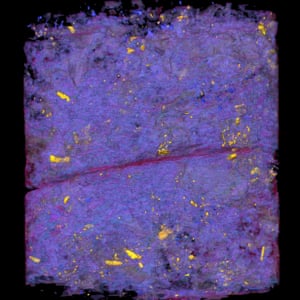We need to find somewhere safe to dispose of high-level nuclear waste; a place where we can be confident it will be isolated and contained for hundreds of thousands of years. And if we want to keep a lid on global warming then we may well need to find a similar place to store carbon dioxide too. But where?

A new study published in Scientific Reports reveals that crystalline rocks, such as granite, have a natural self-sealing mechanism, capable of keeping fluids locked away for millions of years.
Careful analysis of the chemistry and structure of granites from Japan and the UK revealed that when fluid did enter the rock (via fractures), it travelled a few centimetres at most. The scientists believe that calcium in the rock reacted with carbonate in the fluid to create tiny crystals of calcite that plugged all the gaps and prevented further flow. “This amount of calcite would never be expected in a granite, and the distribution of it indicates it almost certainly formed from small quantities of fluid trying to move through the rock,” says Roy Wogelius from the University of Manchester.
Greater understanding is needed before we finalise our radioactive waste disposal strategies, but this is a promising step forward.